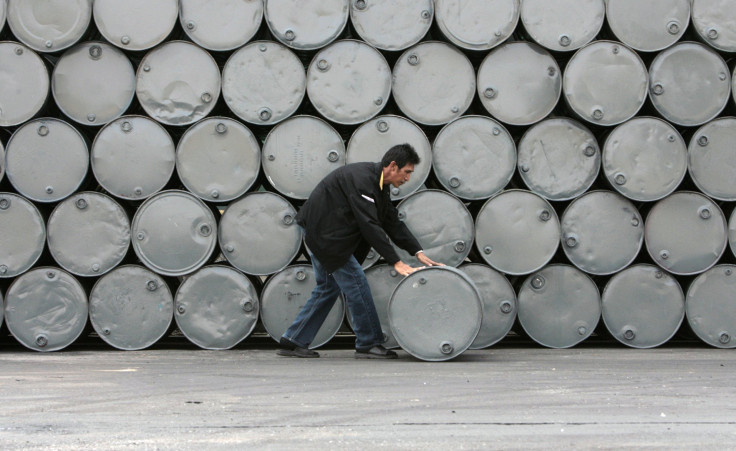Oil Prices: Saudi Arabia, Russia, Venezuela and Qatar Agree To Freeze Crude Output At January Levels, Brent Falls

Saudi Arabia, Russia, Venezuela and Qatar agreed to freeze their oil production at January levels at a meeting in Doha Tuesday. Crude oil prices, which had been rising in anticipation of an announcement of a cut in output, lost some of their gains after the announcement.
Saudi Oil Minister Ali Al-Naimi, after talks with his Russian counterpart Alexander Novak, said that freezing outputs at January levels would be “adequate” and that his country still wanted to meet the demands of its customers, Bloomberg reported. Mohammad bin Saleh al-Sada, Qatar’s energy minister, said his nation would lead the monitoring of the output freeze agreement, the report added. Qatar currently holds the rotating presidency of the Organization of the Petroleum Exporting Countries.
A statement from Novak, issued after the meeting, said the production freeze would take place only if other major crude producing countries also followed suit, Reuters reported.
Venezuela has been among the hardest-hit major oil producers, and the country’s oil minister, Eulogio Del Pino, will meet with his counterparts from Iran and Iraq in Tehran Wednesday, according to the Wall Street Journal.
Both the neighboring Middle East nations have been increasing their oil output in the recent months. Iran, which came out of the shadow of international sanctions in January, has announced plans to steadily increase its oil production over the coming months. The country loaded its first post-sanctions Europe-bound crude cargo earlier this week.
Brent crude, the global benchmark for oil, was trading above $35.4 a barrel, or 6.5 percent higher, before the announcement. Analysts and traders were hoping the discussions would lead to a cut in production. Once the decision of a conditional freeze was made public, Brent fell below $34 a barrel and was trading at around that level in mid-morning European trade.
“This is an announcement of a production freeze among countries whose production didn’t even grow recently,” Eugen Weinberg, head of commodities research at Commerzbank AG in Frankfurt, told Bloomberg. “If Iran and Iraq are not a part of the agreement, it’s not worth much — and even then there is still a question of compliance.”
Saudi Arabia and Russia are the world’s largest crude oil producers. According to data from the International Energy Agency, Saudi Arabia produced 10.2 million barrels a day in January, slightly lower than its recent peak of 10.5 million barrels in June 2015, while Russia produced about 10.9 million barrels a day in January, its highest output in the post-Soviet period, according to Bloomberg.
On an optimistic note, Olivier Jakob, managing director of consultant Petromatrix GmBh, said: “A freeze would not create an immediate U-turn, but it creates a better foundation for the price recovery in the second half,” Bloomberg reported.
The U.S. crude oil benchmark, West Texas Intermediate, was trading above $31 a barrel earlier in the day but fell to below $30 after the announcement.
© Copyright IBTimes 2025. All rights reserved.





















